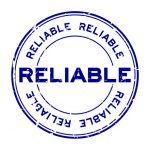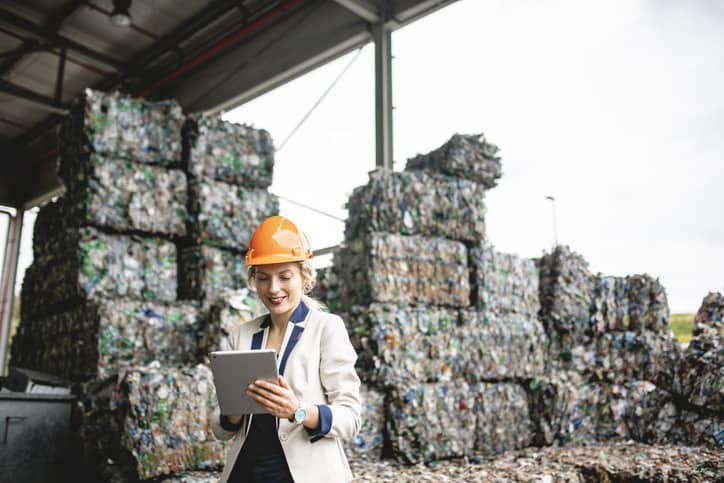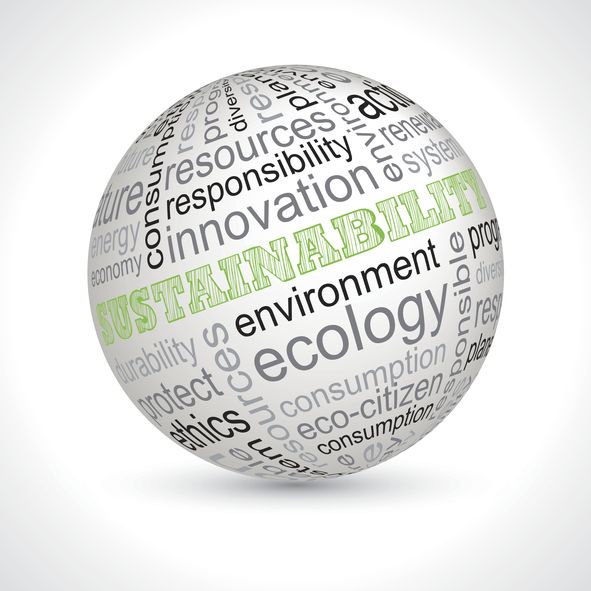Written by: Erik Hupje
Sustainability \ sə-ˌstā-nə-ˈbi-lə-tē \ noun: of, relating to, or being a method of harvesting or using a resource so that the resource is not depleted or permanently damaged.
Reliability | \ ri-ˌlī-ə-ˈbi-lə-tē \ noun: the extent to which an experiment, test or measuring procedure yields the same results on repeated trials
It is not my standard practice to start a blog post with definitions from Merriam-Webster, but in this case, it expresses the point of the article better than a summarization. From the definitions, we can break them down as they apply to manufacturing production and business operations. But let’s not put the cart before the horse; first, it is important to understand the tenets of each.
Sustainability’s Three Pillars
Fiscal or Economic Sustainability
In short, sustainability is focusing resources to meet current demands while not compromising the ability to meet future needs and market demands.
Economic sustainability is fairly simply explained as fiscal responsibility. It is simple budgeting to stay in the black; don’t spend more than you bring in, reinvest in the business, put cash away for later. These are the basic tenets of personal finance and they apply just as well to business finance.
Environmental Sustainability
The global corporate world has made great strides in recent years toward environmental sustainability. For example, the United Nations Environment Programme’s (UNEP) Green economy is a movement to embrace the reduction of environmental risks and reduce dependency on ecologically scarce resources.
Social Sustainability
What holds up to the court of law is often a conviction in the court of public opinion. Social sustainability is the practice of embracing a corporate culture that is congruent with socially acceptable behavior. The caveat to this is that a social culture changes from market to market. Socially progressive, vegan, fair-trade certified, organic coffee probably has a different market base than industrial forklift aftermarket parts manufacturers. Understand your client’s culture.
Reliability
We all have a concept of what reliability is in our daily lives, and some ideas of what items are reliable and which are not. An iPhone is generally reliable; a no-name smartphone may not be as reliable. We desire a reliable automobile, so we don’t become stranded, especially in the winter.
But what is reliability in terms of corporate culture? The definition of reliability in the Kennecott Maintenance System is the ability of an asset to perform as it was designed to do for the lifecycle of the product.
How does this translate in practical terms? In manufacturing, Lean processes strive to produce reliable results by pushing waste out of the manufacturing and industrial environment. Lean makes sense in manufacturing; eliminating waste is a common-sense practice which is rooted in the literal reduction of wasted materials. For example, reducing scrap wood in manufacturing cabinets and reducing waste sheet metal in automotive manufacturing.
We can easily visualize physical waste reduction. But what about reliability through Lean in maintenance management? It could look like this:
- Reducing wasted time walking to a central hardware bin by locating smaller satellite locations across the workspace
- Creating ergonomic shop floors that are designed to produce the same amount of work on each iteration – think locomotive shop maintenance.
Reliability is being able to replicate timeframes, production standards and safety goals consistently and predictably.
Are Reliability and Sustainability the Same?
Reliability and sustainability are considerably different concepts but are important to be conducted in accordance with one another. In order for an operation to become reliable, it must be sustainable. If the operation does not have the pillars of sustainability in place, it cannot be reliable.
Conclusion
In order for a startup to proceed beyond year one, it must first prove to be reliable; you have to provide goods as advertised (or better) when you say you will. Once the operation has proven to be reliable, you must sustain reliability and then move forward with building the pillars of sustainability.
For the last 20 years, Erik Hupje has worked around the world as an asset management engineer, specializing in maintenance and reliability in the upstream oil and gas industry. He is the founder of R2 Reliability and developed the Road to Reliability framework for effective preventive maintenance engineering.



